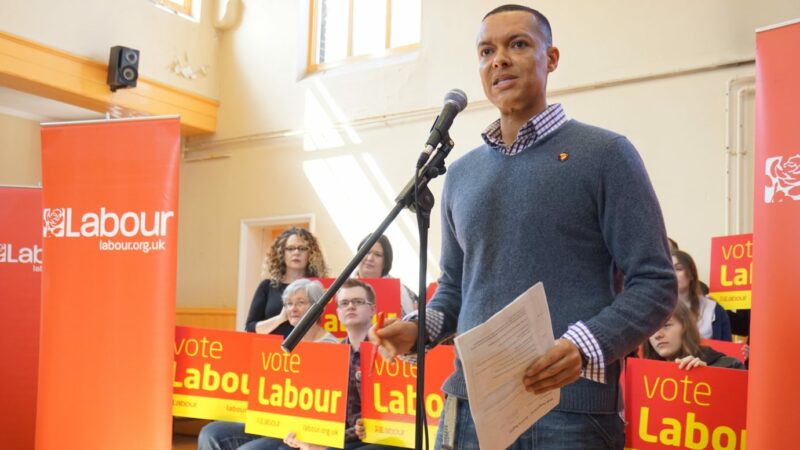
In recent weeks, we have all been moved by the bravery of ordinary Russians risking arrest to stand up against Vladimir Putin’s war – and been frightened by the repression and violence those protesters have faced. We have seen children and pensioners alike being arrested and manhandled by riot police for going to protests and many more scared to even express their views for fear of ending up in prison. Quite rightly, this has been condemned by the international community.
Yet, while the public champion the right to protest abroad, the government is pulling those same rights from under our feet here at home. The government’s policing bill is currently going through the final stages of deliberation in parliament. As many people are already aware, and have been campaigning on for over a year, the bill contains an array of deeply anti-democratic measures that would seriously restrict the right to protest. Although some restrictions were defeated in the House of Lords, many areas of concern remain.
One of the most concerning aspects of the bill is the expansive powers that the government is handing to the police to impose noise-based curbs on protests. Under these measures, the police would be able to restrict protests if they were noisy enough to cause “serious unease, alarm or distress”.
Being “noisy” is not just part and parcel of protesting, it’s often one of the only way people can get their point of view heard. Just last weekend, feminist protesters set off 1,000 rape alarms on the steps of Charing Cross police station. The demonstration marked a year since police officers heavy-handedly broke up a vigil for Sarah Everard and targeted the police station at the centre of recent revelations about misogyny and racism in policing. Rape alarms were chosen because they were one of the many laughable suggestions from the Met Police to try to put the onus on women to be safe, along with “waving down a bus” or running away from police if they are uncomfortable. The protest was powerful and moving.
We have a proud tradition of protest and standing up for what we believe in in the UK – from the Chartists to the suffragettes, from Black Lives Matter to those who took to the streets to express dissent against Covid restrictions. Regardless of whether we agree with the chosen cause of our fellow citizens or not, the ability to not just hold an opinion but to actively express it and to voice demand for change is a fundamental right, and the bedrock of a democratic society. But under these new measures, how many of those protests would have been criminalised or shut down?
In the face of a government trying to put itself above the law, protest is the last resort of those who want to make their voices heard. If the government gets away with passing the policing bill into law, those voices will quite literally be silenced.
These curbs on protest come hand in hand with a raft of other measures designed to stifle dissent and make it harder for ordinary people to challenge those in power. As well as the policing bill, the elections bill currently going through parliament would introduce mandatory voter ID for elections, potentially disenfranchising millions of people across the country. The judicial review process is also being weakened, taking away people’s ability to challenge the government’s decisions in court. And the government is trying to overhaul the Human Rights Act to make it much harder for ordinary people to defend their rights.
It should come as no surprise that we are seeing an escalation of anti-democratic measures being swept through parliament. The same forces that asset-stripped Russia and then proceeded to exert authoritarian control have their home in the UK. Russian oligarchs made the City of London their laundromat of choice, just as many other global kleptocrats do. The stolen wealth that our economic model enabled to flow into the UK out of the hands of the people of Russia also flows into our politics and is corroding our own democracy – for the principles of transparency and democracy do not sit easily alongside the need to accumulate unchallenged wealth and power.
It should also come as no surprise that the sweeping new powers contained in the policing bill have been met with huge opposition from the public. Just recently, peers in the House of Lords gave voice to that dissent by delivering one of the worst government defeats in history, stripping out some of the most pernicious aspects of the bill. But this intransigent government is determined to keep pushing some of these measures through.
It’s vital that the Labour Party stand up against this assault on our democracy. When the bill returns to the House of Lords on Tuesday, peers must continue the principled stance they took when they last voted on the measures and give MPs another opportunity to fight the most pernicious aspects of the bill. To do otherwise would be to wave through an absolutely devastating blow to our democracy and to the power of ordinary people raising their voices on the things that matter most to them.
Hard-won democratic freedoms are now on the line. It falls to us, as lawmakers in the House of Commons and the House of Lords, and every member of the public who believes in democracy, to now use every tool in our arsenal to stop this draconian government in its tracks.




More from LabourList
‘The High Court judgment brings more uncertainty for the trans community’
‘There are good and bad businesses. Labour needs to be able to explain the difference’
‘This ruling should now remove any remaining barrier to approval of EHRC code’